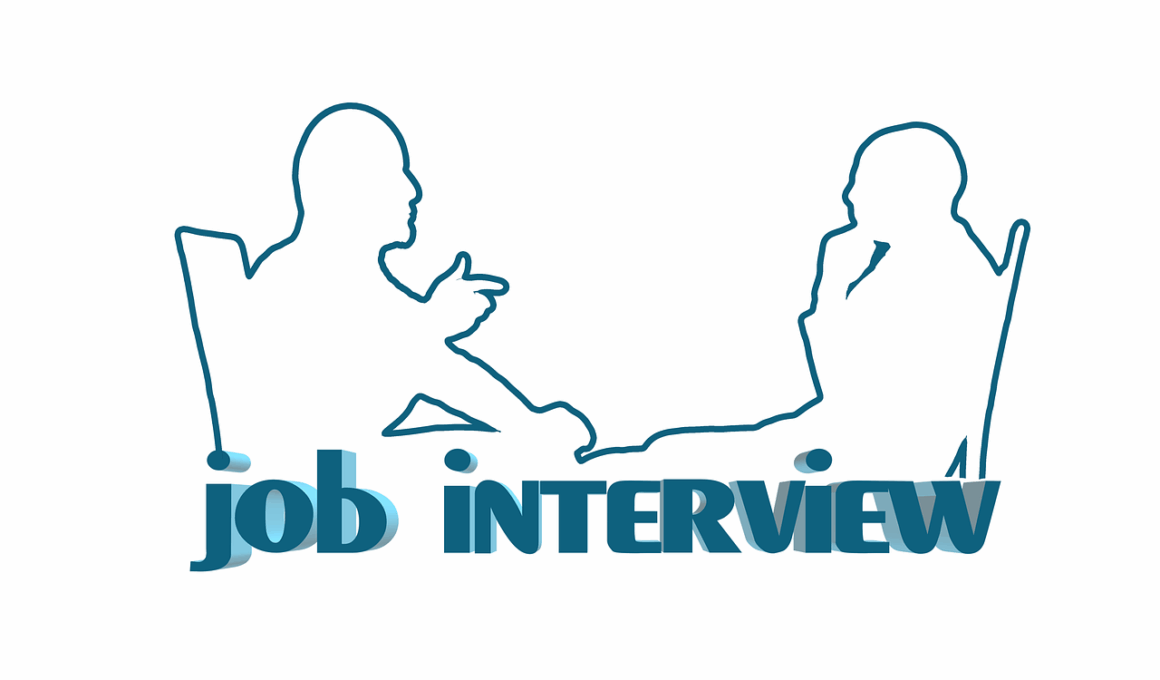Understanding the Candidate Experience in Finance Role Interviews
Finance interviews can be daunting for candidates, with high stakes involved. These sessions are critical for both candidates and employers, shaping the future of careers and companies alike. The interview process serves as a gateway, offering insights into the company culture and the specific role at stake. Candidates often seek clarity regarding expectations during these assessments. They wish for comfortable environments that can foster genuine conversations. With optimal interview experiences, organizations can attract top talent, essential for their success. Effective interview techniques, tailored for finance roles, can enable potential workers to showcase their skills confidently. This includes behavioral interviews, case studies, and technical assessments. In a competitive financial market, understanding the candidate’s mindset can lead to better hiring outcomes. Communication plays a pivotal role, as feedback helps candidates understand the nuances of their performance. Employers should strive to offer constructive insights. Ultimately, enhancing the candidate experience is a mutual benefit that results in successful recruitment. Organizations acknowledging this can elevate their hiring process significantly. Through focus on candidate experience, companies reflect commitment to valuing prospective employees, laying foundations for strong workplace relationships thereafter.
The finance sector faces unique challenges when interviewing prospective candidates. These challenges include assessing qualifications that align with technical and analytical skills specific to the industry. Additionally, candidates’ social and interpersonal skills play significant roles in predicting future job performance. The recruitment process often extends beyond mere qualifications and delves into soft skills, teamwork, and cultural fit. Candidates typically feel pressure to demonstrate mathematical prowess and strategic thinking, as employers often prioritize these abilities. However, conveying character traits that indicate potential for growth is equally important. Employers should embrace techniques that ease candidates into the discussion about their experiences and fit for the role. Structuring interviews to include situational or open-ended questions can allow candidates to elaborate on their thought processes. Such an approach fosters more profound connections, showcasing how candidates effectively deal with various scenarios. Moreover, integrating role-specific tasks within the interview can simulate real working conditions. These strategies are valuable in finance, where analytical rigor and a collaborative spirit are paramount. Consequently, finance employers who invest in nuanced interview processes can attract diverse talent, shifting the industry dynamics towards inclusivity and adaptability.
Building Rapport During Interviews
Establishing a solid connection with candidates during interviews is vital, as this rapport can significantly impact overall performance. Candidates often enter interviews with anxiety, and fostering a warm environment can alleviate some of this stress. Encouraging human interaction helps to engage emotionally and intellectually. Interviewers can initiate a friendly chat, asking candidates about their interests to create an informal atmosphere. A focus on active listening ensures interviewers genuinely understand candidates’ motivations and concerns. This approach cultivates trust, which is integral for conveying company values and requirements accurately. When candidates feel heard, they’re more inclined to open up about their experiences and aspirations. Even subtle body language signals, like maintaining eye contact and smiling, can help strengthen connections. Furthermore, asking candidates about their views on industry trends or challenges can provide insight into their thought processes. Such discussions can enrich the dialogue, paving the way for deeper assessments of their fit for the role. By enhancing rapport in interviews, candidates can showcase their true potential beyond technical expertise. Thus, organizations equipped with rapport-building strategies create memorable experiences, improving candidate engagement, and ultimately benefiting their recruitment efforts.
Feedback is a cornerstone of the interview process, encompassing both the candidate’s and employer’s perspectives. Organizations have a vital responsibility to offer constructive feedback that aids candidates in understanding their strengths and areas for improvement. This form of communication reflects professionalism and affords opportunities for growth. Candidates often appreciate insights into aspects that resonated positively during interviews, as well as pointers for future engagement. Not only does this contribute to personal development, but it also enhances the overall candidate experience significantly. When organizations prioritize providing timely feedback, they establish reputations as supportive employers. Particularly in finance roles, candidates benefit from receiving insights on their analytical capabilities or industry knowledge. Clear communication from interviewers can help candidates navigate complex financial landscapes. Moreover, offering transparency during the hiring process fosters goodwill, encouraging candidates to reapply in the future or recommend the organization to others. Positive experiences during interviews can create lasting impressions, allowing companies to build strong employer branding. This holistic approach to feedback embodies an organization’s commitment to nurturing talent while securing exceptional hires who align with core values and objectives.
Utilizing Technology in Finance Interviews
In today’s digital frontier, leveraging technology in finance interviews offers innovations that can enhance the hiring process. Virtual interview platforms are transforming typical assessments, making them more accessible for both parties involved. These tools can significantly reduce logistical challenges while accommodating diverse candidates. Moreover, video interviewing allows organizations to reach talent pools across various geographical locations. This inclusivity can broaden the search for ideal candidates, ensuring a rich variety of experienced professionals to choose from. Utilizing recorded interviews enables employers to review the submissions at their convenience, allowing for more balanced decisions. Furthermore, incorporating assessment tools can help gauge candidates’ competencies effectively. Automated scoring systems can streamline evaluation processes and provide quantitative insights that support human judgment. Companies can even integrate financial simulations or software assessments to understand a candidate’s technical proficiency further. However, it’s crucial to maintain balance and ensure a personal touch remains intact within the technology-focused approach. Successful integration of tech-driven solutions can streamline hiring processes while preserving interpersonal aspects critical in finance roles. Organizations embracing these modern tools can navigate the complexities of financial recruitment effectively, adapting swiftly to ever-changing market demands.
Another critical aspect of enhancing candidate experience in finance role interviews lies in setting clear expectations. Candidates should receive comprehensive information about the interview format, including any specific skills or knowledge that will be assessed. Transparency regarding timelines of decisions and follow-ups should complement this information, helping to alleviate candidates’ uncertainty. Clear communication of organizational values and cultural fit expectations is equally important, considering these items weigh heavily in candidates’ decisions post-interview. Moreover, encouraging candidates to ask questions about the role and organization fosters an open dialogue that can legitimize experiences. This transparency builds trust from the outset and allows candidates to evaluate if the role aligns with their long-term career trajectories. Providing clear criteria for how candidates are being assessed can also enhance their engagement and preparedness. For instance, detailing an evaluation matrix focusing on both technical skills and cultural fit gives candidates a succinct understanding of priorities. By managing expectations effectively, organizations create a positive atmosphere where candidates can perform their best. This practice not only improves the candidate experience but also increases the likelihood that selected individuals will thrive within the organization’s unique financial environment.
The Role of Diversity and Inclusion
Diversity and inclusion represent important trends reshaping the hiring landscape in recent years. Finance interview processes must reflect these principles fully to attract a wide range of candidates with diverse perspectives. Embracing varied backgrounds, perspectives, and experiences contributes to creativity and innovation, essential traits for navigating complex financial environments. Organizations committed to inclusivity can leverage interview techniques that actively promote these principles, such as unbiased questioning practices and panel interviews involving diverse stakeholders. Additionally, featuring diverse interview panels can signal openness and commitment to breaking traditional hiring barriers. By doing so, organizations emphasize the importance of cultural fit while also recognizing diverse competencies. Candidates appreciate organizations that promote equality and accessibility throughout the process, as these values contribute to a positive experience. Training interviewers to recognize unconscious biases also plays a pivotal role in this framework. Recent research has demonstrated that diverse teams often outperform homogeneous ones in decision-making and problem solving. As finance roles quickly evolve, organizations prioritizing diversity and inclusion initiatives can build more robust teams, equipped to address future challenges and opportunities with multifaceted perspectives.
In conclusion, enhancing the candidate experience in finance role interviews is integral for organizations aiming to attract and retain top talent. This process requires a multifaceted approach that embraces rapport building, clear communication, technology integration, and diversity initiatives. Creating a welcoming environment through effective interview techniques allows candidates to showcase their true potential while alleviating anxieties. Beyond establishing interpersonal connections, organizations must invest in holistic experiences, providing feedback and addressing expectations respectfully and transparently. As financial markets evolve rapidly, a commitment to innovative practices will set organizations apart. Inclusivity ensures that a variety of voices contribute, enriching the decision-making landscape. In these competitive hiring scenarios, prioritizing the candidate experience ultimately leads to mutual growth. Companies that recognize the importance of each candidate’s journey can foster long-lasting relationships that contribute positively to both individual and organizational success. By embracing these principles, finance organizations can restructure their hiring processes to align more closely with contemporary expectations, ensuring that they secure the right talent poised to thrive in tomorrow’s evolving financial landscape.


